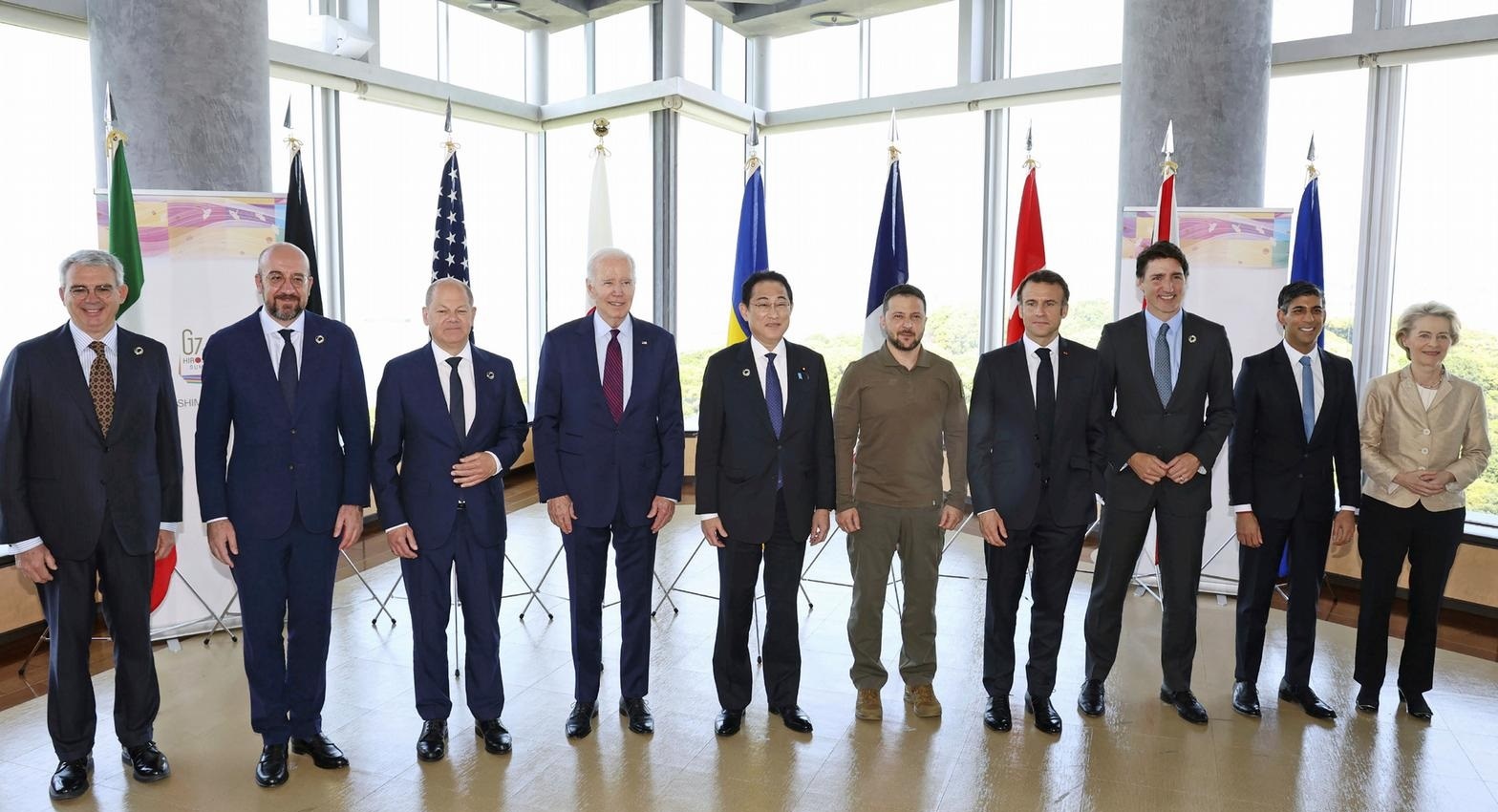G7: Ukraine dominates last day of 'successful' summit
Time to Read: 4 minute
Ukrainian President Volodymyr Zelensky took center stage on the last day of the G7 summit in Japan as leaders pledged a unified approach to tackling Russia and China.
Although Ukraine is not one of the G7 member states, Ukrainian President Volodimir Zelensky garnered much of the attention on the last day of the three-day summit in the Japanese city of Hiroshima.
In a speech at the Hiroshima Memorial Park, Zelensky reiterated how important it is for the world to hear the Ukrainian people call for “unity” from Hiroshima, the city that was rebuilt after being struck by a US atomic bomb in 1945.
In a forceful speech delivered in Ukraine, he said the images in the Hiroshima museum remind him of Bakhmut, where “there is absolutely nothing alive” and “all the buildings are destroyed.”
Zelensky's appeals for support at the summit received positive responses. US President Joe Biden unveiled an additional $375 million military aid package for Ukraine , while other G7 leaders pledged continued support for the country, devastated by the Russian invasion.
Ucrania: #Zelenski consigue en el #G7 más dinero y más armas
— DW Español (@dw_espanol) May 21, 2023
El presidente ucraniano salió de Hiroshima con la promesa de millonarios apoyos económicos y militares por parte de los países del G7. Su discurso intentó presionar a otras potencias como la India.#DWNoticias /jam pic.twitter.com/86UZFz8DJ8
“There are no winners in a nuclear war”
Japanese Prime Minister Fumio Kishida said it was “significant” that the G7 showed solidarity by inviting Zelensky and that the group reaffirmed that “there are no winners in nuclear war” and that this type of conflict “should never be fought.”
As one of the few Asian countries to have shown unwavering support for Ukraine since the start of the war, Japan made the G7 “a great success” on many levels, says Sari Arho Havren, a visiting researcher at the University of Helsinki. By inviting Zelensky to the summit, Kishida bolstered domestic support for her as he uses the summit to raise Japan's profile among like-minded countries, she explains.
Side meetings assume vital importance
One of the most anticipated events during the summit was the first in-person meeting between Indian Prime Minister Narendra Modi and Zelensky since Russia invaded Ukraine last February.
India has previously been reluctant to condemn the Russian invasion and its current economic ties with Moscow have come under international scrutiny. However, in Saturday's meeting with Zelensky, Modi vowed that India would do everything possible to help end the conflict.
Modi's willingness to meet Zelensky shows that India may be reconsidering its position on the invasion, said political scientist Ian Chong of the National University of Singapore.
As for Zelensky, the chance to interact with Modi in person may open up the option for India to act as a bridge between Russia and Ukraine, Chong told DW. The meeting also reminds China that it is not the “only option on the table” for Ukraine and Russia, he added.
deal with china
While the Ukraine issue dominated the Hiroshima summit, the G7 leaders also embraced a united response to a wide range of concerns about China.
In a statement released on Saturday, the G7 heads of state expressed serious concerns about China's military activities in the South China Sea and East China Sea and called for peaceful solutions to the rising tension in the Taiwan Strait.
At the same time, they expressed their desire to build “constructive and stable relations” with China, stressing that the world's leading democracies should express their concerns directly to Beijing.
Reiterating their aim to “reduce risks” but not economically “decouple” from China, the G7 member states also stressed that their economic policies are not designed to “frustrate” China's economic progress and development.
However, the bloc has also pledged to counter challenges posed by “non-market policies and practices,” including forced technology transfer and data disclosure, which the G7 says have distorted the global economy.
China's foreign ministry responded to the G7 statement, saying the group's approach “has no international credibility” and accused it of “obstructing world peace.” The angry Chinese response shows, for Dexter Roberts, of the Atlantic Council's Indo-Pacific Security Initiative, that the G7 statement “struck a nerve” in Beijing.
For Chong, “the question is how these different countries,” with different interests and levels of economic commitment to China, “carry out what they say.” And yes, the unit of declarations is followed by the unit of action.



